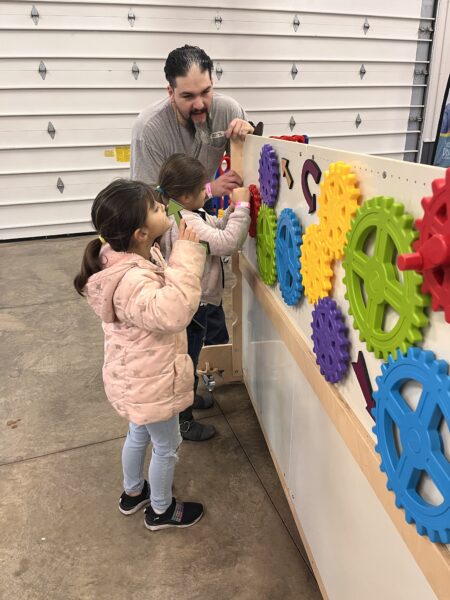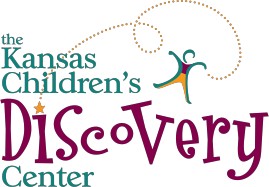Play Free Prison Program Expands to Serve Fathers
"Dad!" a little boy shouted as he threw his arms around his father's neck. A long hug followed in which neither father or son wanted to let go. When they did, they both smiled from ear to ear. "We get to play today!" the father said. The two joined the other fathers and children playing around the room, all participating in Play Free from the Kansas Children's Discovery Center.
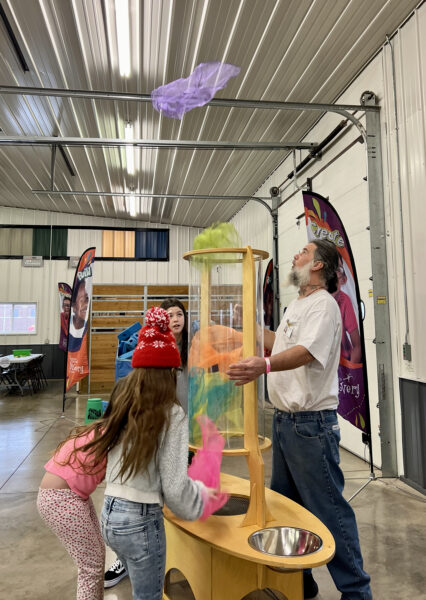
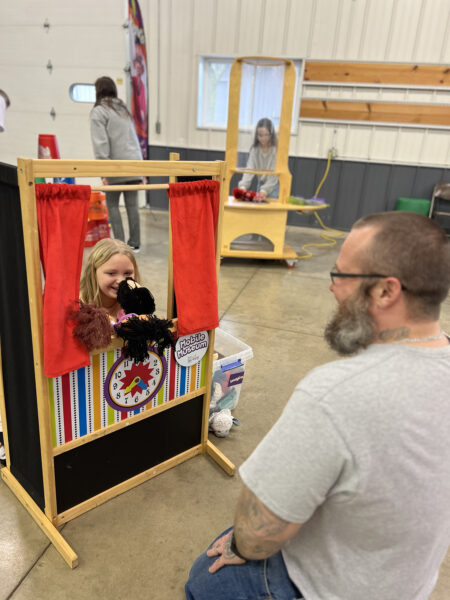
Play Free is a play-based education program for children and their incarcerated parents (in some cases, grandparents). The program creates child-centered bonding time for families outside the prison walls, both at the museum itself and in community settings with the Discovery Center's Mobile Museum. Play Free started in 2018 in partnership with Topeka Correctional Facility. The program invited mothers to visit the museum with their children for a full day of playful learning. In 2024, the program is expanding to serve fathers and juvenile parents across the state of Kansas.
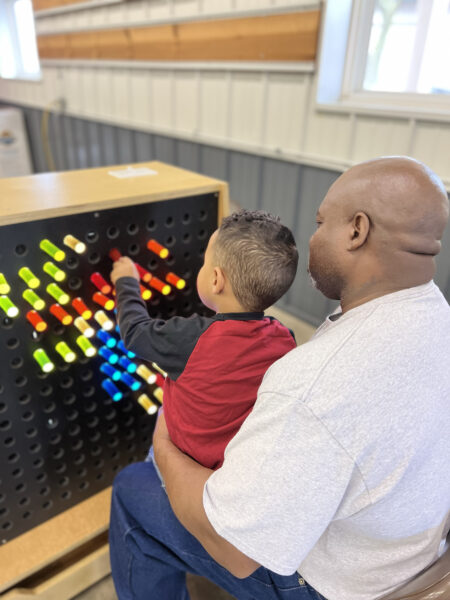
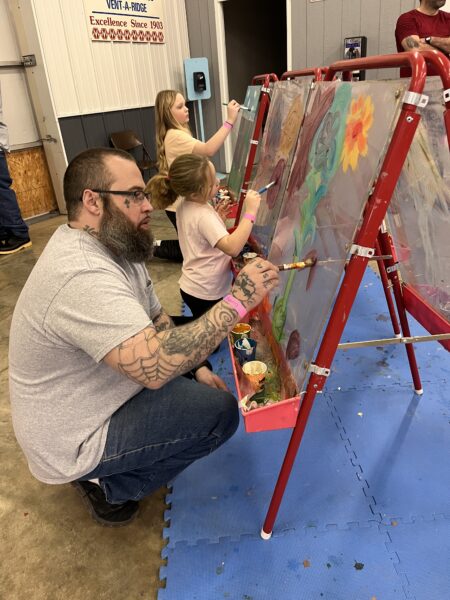
The fathers and sons joyfully meeting at the Kansas State Fairgrounds in February of 2024 were the first group of incarcerated men served by Play Free. When children arrived, hugs and warm greetings gave way to play. Smiles were exchanged, games played, and bonds strengthened through shared experiences. Together, participants painted, made music, created art, built structures, and delighted in simple joys like sharing snacks and reading books. In the puppet theater and veterinarian clinic, they ventured into realms of make-believe, weaving stories and memories that would last a lifetime. As the day neared its end, each child selected a book and a stuffed animal, tangible reminders of the love and connection shared. With heartfelt goodbyes, they departed, carrying with them the cherished moments of the day.
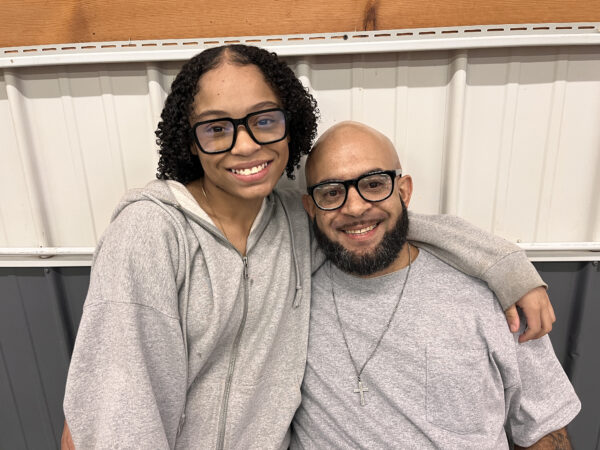
More than five million U.S. children have had at least one parent in prison. Research has linked having an incarcerated parent to a wide range of childhood health problems including asthma, depression, anxiety, acting-out behavior, grade retention, alcohol and drug abuse, and higher numbers of Adverse Childhood Experiences (ACEs). Prison-based programs frequently focus on building parenting skills, with comparatively few programs serving the children themselves and fewer still actively promoting bonds between children and their incarcerated parents (Murphey and Cooper, 2015).
